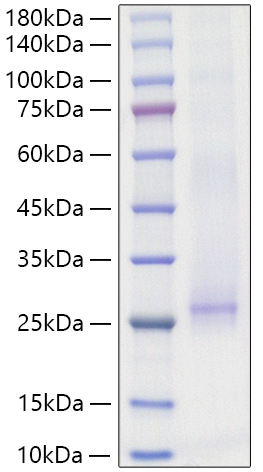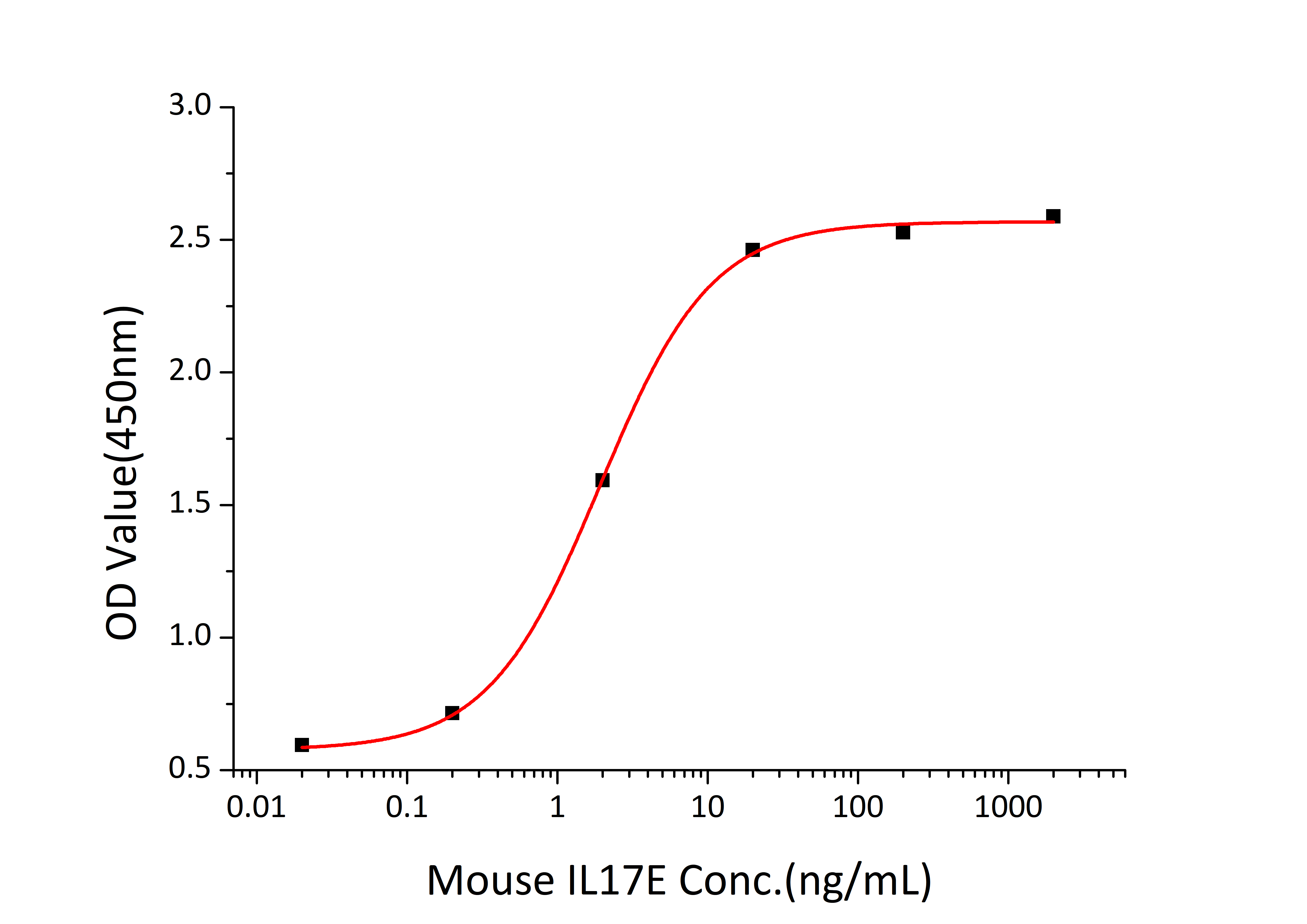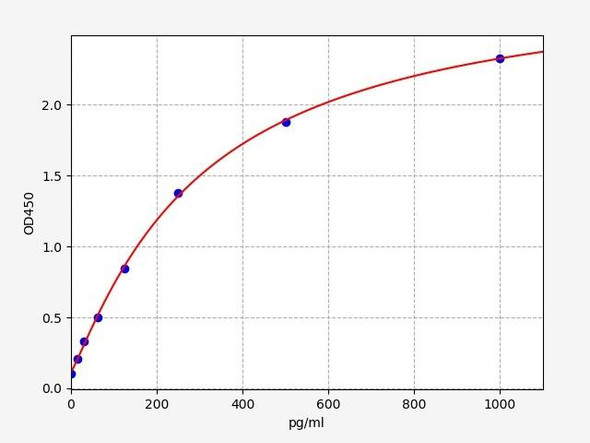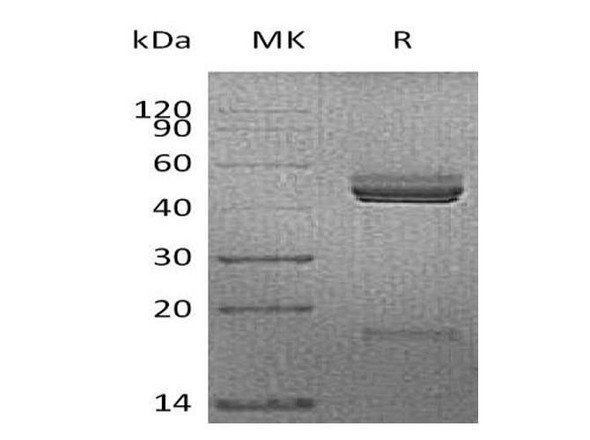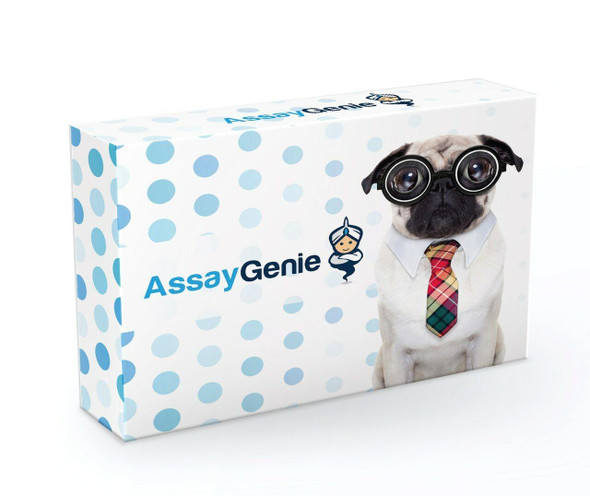Description
Recombinant Mouse IL-17E Protein
The Recombinant Mouse IL-17E Protein is a high-quality recombinant protein designed for murine biological research applications. This protein serves as an essential reagent in mouse model studies, comparative immunology research, and preclinical therapeutic evaluations, enabling scientists to investigate IL-17E biology and its relevance to human disease mechanisms through translational research approaches.
This product (SKU: RPCB1353) is produced using HEK293 cells and features a N-His tag for convenient detection and purification. The protein exhibits a calculated molecular weight of 18.31 kDa with an observed molecular weight of 25-30 kDa under denaturing conditions, achieving ≥ 90 % as determined by SDS-PAGE.. Functional bioactivity has been validated through rigorous quality control assays, confirming its suitability for demanding research applications.
Key Features
| High Purity by Affinity Chromatography | |
| Mammalian & Bacterial Expression Systems | |
| High lot-to-lot consistency via strict QC |
| Product Name: | Recombinant Mouse IL-17E Protein |
| SKU: | RPCB1353 |
| Size: | 10 μg , 20 μg , 50 μg , 100 μg |
| Reactivity: | Mouse |
| Synonyms: | IL-25, Il17e, IL-17e, IL25 |
| Tag: | N-His |
| Expression Host: | HEK293 cells |
| Calculated MW: | 18.31 kDa |
| Observed MW: | 25-30 kDa |
| Gene ID: | 140806 |
| Protein Description: | High quality, high purity and low endotoxin recombinant Recombinant Mouse IL-25/IL-17E Protein (RPCB1353), tested reactivity in HEK293 cells and has been validated in SDS-PAGE.100% guaranteed. |
| Endotoxin: | < 0.01 EU/μg of the protein by LAL method |
| Purity: | ≥ 90 % as determined by SDS-PAGE. |
| Formulation: | Lyophilized from a 0.22 μm filtered solution of PBS, pH 7.4. |
| Bio-Activity: | Measured by its ability to induce CXCL1/GRO alpha secretion in HT-29 human colon adenocarcinoma cells. The ED 50 for this effect is 0.96-3.83 ng/mL, corresponding to a specific activity of 2.61×10 5 ~1.04×10 6 units/mg. |
| Reconstitution: | Centrifuge the vial before opening. Reconstitute to a concentration of 0.1-0.5 mg/mL in sterile distilled water. Avoid vortex or vigorously pipetting the protein. For long term storage, it is recommended to add a carrier protein or stablizer (e.g. 0.1% BSA, 5% HSA, 10% FBS or 5% Trehalose), and aliquot the reconstituted protein solution to minimize free-thaw cycles. |
| Storage: | Store at -20℃.Store the lyophilized protein at -20℃ to -80 ℃ up to 1 year from the date of receipt. After reconstitution, the protein solution is stable at -20℃ for 3 months, at 2-8℃ for up to 1 week. |
Interleukin-25 (IL-25) is a cytokine that shares sequence similarity with interleukin 17. This cytokine can induce NF-kappaB activation, and stimulate the production of interleukin 8. Both this cytokine and interleukin 17B are ligands for the cytokine receptor IL17BR. IL-25 is a member of the IL-17 family of cytokines. However, unlike the other members of this family, IL-25 promotes T helper (Th) 2 responses. IL-25 also regulates the development of autoimmune inflammation mediated by IL-17–producing T cells. IL-25 and IL-17, being members of the same cytokine family, play opposing roles in the pathogenesis of organ-specific autoimmunity. IL-25 promotes cell expansion and Th2 cytokine production when Th2 central memory cells are stimulated with thymic stromal lymphopoietin (TSLP)–activated dendritic cells (DCs), homeostatic cytokines, or T cell receptor for antigen triggering. Elevated expression of IL-25 and IL-25R transcripts was observed in asthmatic lung tissues and atopic dermatitis skin lesions, linking their possible roles with exacerbated allergic disorders. A plausible explanation that IL-25 produced by innate effector eosinophils and basophils may augment the allergic inflammation by enhancing the maintenance and functions of adaptive Th2 memory cells had been provided.


